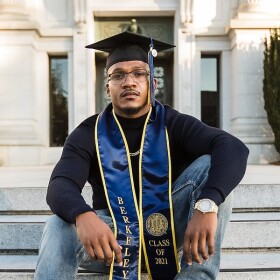KPBS Investigates

KPBS News serves the people of the San Diego region with trustworthy, in-depth information that allows the community to hold its leaders accountable. We show how global and local current affairs change our lives, and how San Diego changes the world. We tell you more than just what is happening—we tell you why.
PODCASTS
-
When pandemic-inspired protections for homeowners and renters expired, renters especially have become vulnerable to evictions in San Diego’s hot housing market. In this second part of a two part series on evictions, KPBS Race and Equity reporter follows one family that has been forced out of their apartment and their search for new housing. Like thousands of other low-income renters in San Diego, their best option may be to leave the region all together. But there are groups organizing to fight evictions, and a growing tenants’ rights movement in San Diego.
-
The pandemic inspired a slate of local, state and national eviction bans, and other protections for homeowners and renters to keep people housed. But those protections are going away, leaving renters especially vulnerable to eviction as the San Diego rental market heats up. In Part 1 of a 2 part series, KPBS Race and Equity reporter Cristina Kim looks at the efforts to keep people housed here in San Diego County. We talk about what worked, and who fell through the cracks, and what’s next for the region’s renters and landlords as housing becomes increasingly more expensive and protections evaporate. We also learn about the toll that the threat of evictions places on families and children.
-
Today on KPBS Investigates, Aaron Harvey’s journey from wrongful gang charges to UC Berkeley graduation. In the summer of 2014, a swarm of police arrested Aaron Harvey near where he was living outside Las Vegas. Harvey is from San Diego, and was charged as a test case by San Diego District Attorney Bonnie Dumanis using a law that had never been used before. It said someone could be charged for conspiracy for gang shootings, even if that person had nothing to do with the shootings at all. That was the case for Harvey. He was charged because he was in social media pictures wearing gang colors and making gang signs. A judge dismissed the charges against him, but not before he spent seven months in jail. Now, Harvey has done something that when he was in jail seemed like an impossible dream: graduating from UC Berkeley. This KPBS Investigates episode was reported and written by Claire Trageser. Emily Jankowski is the director of sound design. Kinsee Morlan is Podcast Coordinator. This episode was edited by Megan Burke. Lisa Morissette is operations manager and John Decker is the interim associate general manager of content. Stay tuned for more episodes of KPBS Investigates right here in your podcast feed.
-
Increasing numbers of asylum seekers are being allowed to enter the United States. But with the asylum system still severely curtailed, thousands remain stuck in dangerous conditions in Tijuana. KPBS reporter Max Rivlin-Nadler has been following the story for months. His reporting is featured in a new special report for the “KPBS Investigates” and “Port of Entry” podcasts. In the episode, Rivlin-Nadler follows the painfully long wait many asylum seekers have had to endure, simply for a chance at finding refuge in the U.S. It outlines America's critically damaged asylum system at the U.S. Mexico border by introducing you to the people on the ground, both the migrants living in the dangerous refugee camps in Tijuana and the activists and lawyers trying to help them.
-
The KPBS Investigates podcast is where our news team is able to dive more deeply into the stories we cover. Today, investigative reporter Claire Trageser brings us the story of one woman and her struggle to keep her massage business afloat during the past turbulent year. Her story is emblematic of what has happened to many small businesses all across San Diego county because of the economic fallout of the pandemic. This episode explores the difficulties San Diego businesses faced accessing the loans and resources aimed at helping them survive the brutal cycles of shutdowns and reopenings. Many businesses were forced to close but, it turns out, some parts of the county fared far better than others.
-
As San Diego Mayor Kevin Faulconer gets close to signing a new deal with a private company, activists push for “municipalization,” which means the city takes over the power grid. You're listening to "KPBS Investigates," a podcast from the KPBS newsroom bringing you in-depth stories that help us better understand our region. Support our work: www.kpbs.org/donate
-
More than 15 years after the Dr J's shooting, a lot of people are thinking about what's next. Southeast San Diego residents want the government and police to change, and they want their communities to change for the better.
-
After the shooting at Dr J's, police and prosecutors looked for informants who would trade information for reduced sentences and money to move away from San Diego. One informant in particular shows what a difficult decision that can be.
-
In the case against James Carter, the prosecutor used a common tactic when trying people from Southeast San Diego, especially young black men. He established a link between Carter and a gang, and then used that link to establish a motive.
-
The shooting at Dr J's has had ripple effects throughout the community and the rest of the city. But it also impacted the people directly involved—the families of the women who were killed, and the family of the man who was eventually convicted of their murder.










